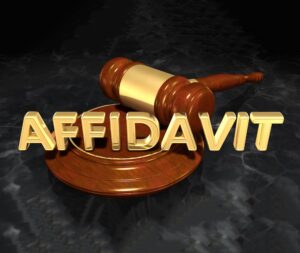Full title: Justin Michael WOLFE, Petitioner, v. Harold W. CLARKE, Director, Virginia Department of Corrections,1 Respondent.
Court: United States District Court, E.D. Virginia, Norfolk Division.
Date published: Jul 26, 2011
Facts
On January 7, 2002, a Prince William County jury convicted Petitioner of capital murder (murder-for-hire), use of a firearm in the commission of a felony, and conspiracy to distribute marijuana. As a result of his convictions, Petitioner was sentenced to death on the murder-for-hire charge and prison terms of thirty years and three years, respectively, on the conspiracy and firearm charges. The petitioner filed an appeal in the Supreme Court of Virginia on the capital murder conviction
and filed an appeal in the Virginia Court of Appeals on the firearm and drug convictions. The non-death penalty cases were certified by the Supreme Court of Virginia and consolidated. The Supreme Court of Virginia dismissed the petition on March 10, 2005, and the United States Supreme Court denied Wolfe’s petition for writ of certiorari on July 8, 2005.
On November 7, 2005, Petitioner filed his federal habeas petition under the authority of 28 U.S.C. § 2254 (“§ 2254 claim”). On August 7, 2007, the Magistrate Judge issued a Report and Recommendation declining to conduct an evidentiary hearing and recommending that his petition be dismissed. On February 11, 2008, this Court adopted the Report and Recommendation and dismissed Wolfe’s petition. Petitioner then filed a motion to alter or amend the judgment which this Court denied on May 20, 2008. On June 18, 2008, Petitioner filed his notice of appeal. On September 12, 2008, the United States Court of Appeals for the Fourth Circuit granted Petitioner a certificate of appealability on his extraneous influence, venireman, Brady, and Giglio claims. On May 11, 2009, the United States Court of Appeals for the Fourth Circuit affirmed the district court’s rulings on the extraneous influence claim and the venireman-counsel subpart and vacated this Court’s ruling on the Brady, Giglio, and venireman-court subpart claims. Wolfe v. Johnson, 565 F.3d 140 (4th Cir.2009). Additionally, the United States Court of Appeals for the Fourth Circuit remanded the case for a determination under Schlup v. Delo, 513 U.S. 298, 115 S.Ct. 851, 130 L.Ed.2d 808 (1995) and to decide whether an evidentiary hearing was appropriate. Id. On February 4, 2010, this Court issued a Memorandum Opinion and Order finding that Petitioner had satisfied the Schlup v. Delo standard to pursue his § 2254 claim. Furthermore, the Court granted Petitioner’s Motion for an Evidentiary Hearing on his Brady and Giglio claims and reserved its ruling on Petitioner’s venireman-court claim. The Court conducted an evidentiary hearing on Petitioner’s Brady and Giglio claims on November 2, 2010.
After the hearing, the Court ordered both parties to submit proposed findings of fact and conclusions of law. Both parties submitted proposed findings of fact and conclusions of law on January 18, 2011.
On April 22, 2011, Petitioner also filed a Motion for Leave to Amend Petition for Habeas Corpus to include a new legal argument regarding key government witness, Owen Barber’s, false testimony at trial. The Director filed a response in opposition to the motion on May 4, 2011; and Petitioner filed a reply in support on May 5, 2011. Having been fully briefed, these matters are now ripe for judicial determination.
Issue
Whether there is a “reasonable probability” that the result of the proceeding would have been different if the evidence had been disclosed.
Decision
The Court FINDS that Wolfe was denied the right to due process pursuant to the Fourteenth Amendment as interpreted in Brady v. Maryland, 373 U.S. 83, 83 S.Ct. 1194, 10 L.Ed.2d 215 (1963), to be apprised of all material, exculpatory information within the hands of the prosecution. Petitioner’s motion for leave to amend the habeas petition is GRANTED, and the Court FINDS that the Commonwealth’s use of Barber’s false testimony is also grounds for habeas relief under both Stockton v. Virginia and Giglio v. United States. Finally, Petitioner’s habeas petition for relief on the ground that he was denied his Sixth Amendment right to an impartial jury is GRANTED.
Accordingly, Wolfe’s petition for a writ of habeas corpus is GRANTED and his conviction and sentence are VACATED. The case is remanded to the Supreme Court of Virginia for further proceedings not inconsistent with this opinion.
The Clerk is DIRECTED to send a copy of this Order to the parties and counsel of record.
IT IS SO ORDERED.
